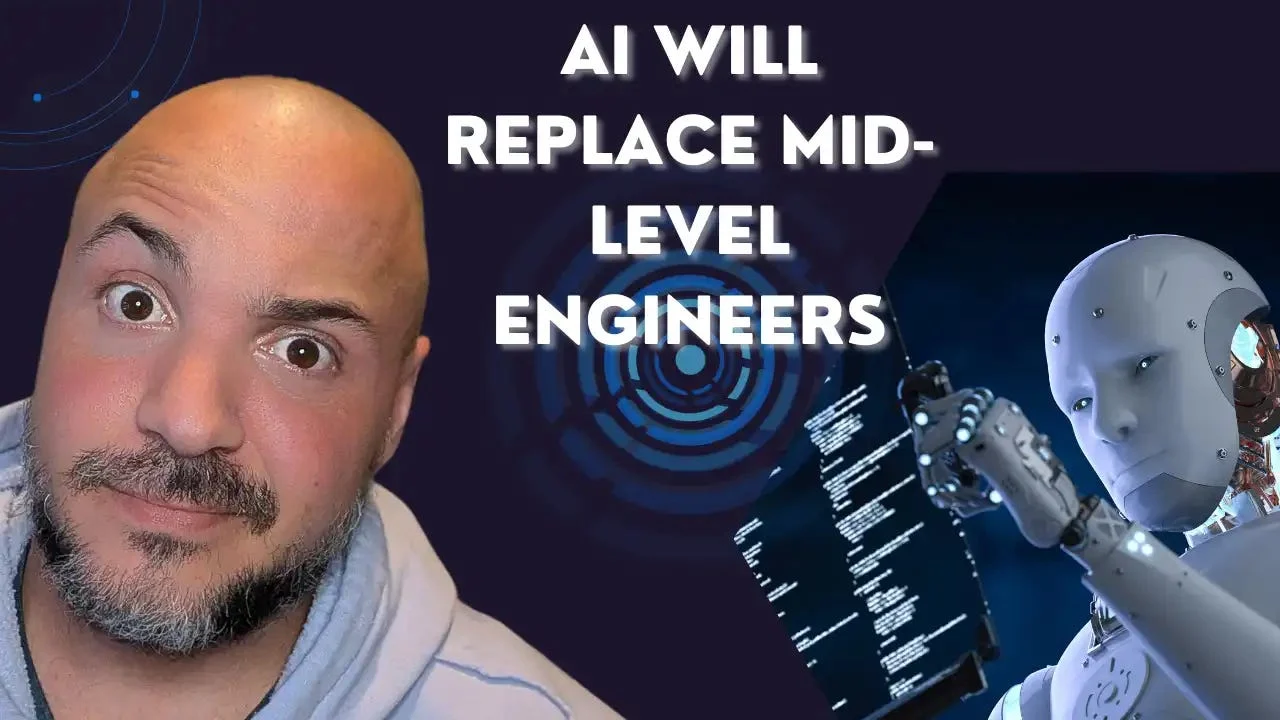AI Replacing Engineers.
Will AI Replace Civil Engineers in 2025?
As artificial intelligence (AI) continues to evolve, questions surrounding its impact on traditional professions are growing. One pressing concern: Will AI replacing engineers become reality? Specifically, can AI take over the role of civil engineers—professionals responsible for designing, building, and maintaining infrastructure?
In this in-depth analysis, we explore the current trends, challenges, and projections for civil engineering careers in the United States, European Union, and Australia as AI takes center stage in 2025.
The Rise of AI in Civil Engineering
How AI Is Currently Being Used
In civil engineering, AI is no longer a futuristic concept. It’s already being used to:
-
Optimize structural design via generative design
-
Predict maintenance needs through machine learning
-
Automate surveying with drone-based AI mapping
-
Manage resources and scheduling with intelligent project planning software
These tools allow firms to increase efficiency, reduce costs, and minimize human error. For instance, AI-powered software like Autodesk’s BIM 360 and Spacemaker AI enable engineers to analyze environmental constraints and design alternatives in minutes.
📘 Read more: Autodesk BIM 360 and AI Use Cases
AI Replacing Engineers: A Global Outlook
United States: Augmentation, Not Replacement
In the US, engineering firms like Bechtel and Jacobs are adopting AI to augment—not replace—human engineers. While AI automates calculations, simulations, and repetitive tasks, creative judgment, ethical considerations, and regulatory decisions remain firmly human.
A 2024 report by the American Society of Civil Engineers (ASCE) confirmed that AI will transform job roles, but not eliminate them. Engineers will increasingly collaborate with AI rather than compete against it.
🔍 Source: ASCE Report on AI in Engineering
Europe: A Shift Toward Digital Collaboration
The European Union is pushing for AI-driven innovation, especially under the Digital Europe Programme. While countries like Germany and the Netherlands are embracing automation in infrastructure, their governments also emphasize ethical AI use and job reskilling.
Rather than replacing engineers, European initiatives focus on “human-in-the-loop” models, where AI assists decision-making but humans retain oversight.
🌐 EU Initiative: Digital Europe AI in Engineering
The Reality of AI Replacing Engineers
Will Jobs Disappear?
Despite automation’s rapid rise, experts agree that civil engineers’ jobs aren’t disappearing—they’re evolving. Tasks like hand-drafting or manual surveying may become obsolete, but engineers will transition into AI supervisors, data analysts, and systems integrators.
AI lacks human empathy, contextual awareness, and judgment—qualities critical in infrastructure projects that affect public safety and wellbeing.
📘 MIT Study: AI and the Future of Work

How AI Is Changing Civil Engineering Careers
From Designers to Supervisors
AI will shift engineers from active design execution to project supervision and algorithm management. Civil engineers will need to:
-
Understand AI outputs
-
Adjust model parameters
-
Validate automated decisions
This means engineers must be digitally literate and trained in AI ethics, data science, and human-centered design.
📘 Learn more: World Economic Forum on Future Skills
Reskilling the Workforce. AI Replacing Engineers
To avoid obsolescence, universities and companies are introducing AI and data science modules into civil engineering programs. In Australia, the University of Melbourne now includes machine learning and smart infrastructure analytics in its Bachelor of Engineering curriculum.
Professional institutions like Engineers Australia and FEANI (Europe) are also offering continuous education in AI.
🎓 University Course: University of Melbourne – Smart Infrastructure
Ethical and Safety Concerns in AI Engineering
Accountability in Automated Decisions
Who is responsible if AI miscalculates a load-bearing structure? Such questions highlight the legal and ethical concerns surrounding AI in civil engineering. Many countries are working to introduce AI accountability frameworks for safety-critical systems.
For example, the EU’s Artificial Intelligence Act mandates transparency in high-risk AI systems, including those used in urban planning or structural analysis.
📘 Read: EU AI Act Overview
Bias in Data and Design on AI Replacing Engineers
Another challenge is bias in training data. If AI is trained on data favoring urban over rural designs, it may propose inequitable infrastructure plans. Civil engineers must ensure diverse datasets, inclusive modeling, and ongoing audits to counteract this.
🔍 Insight: Brookings Institution on AI Bias
Future-Proofing Your Civil Engineering Career
To remain competitive in a world where AI replacing engineers is debated, professionals must:
-
Learn to collaborate with AI tools
-
Develop interdisciplinary skills (data, ethics, environmental science)
-
Advocate for inclusive and ethical AI use
-
Embrace lifelong learning
AI won’t eliminate engineering—it will redefine what it means to be a civil engineer.
Conclusion on AI Replacing Engineers
So, will AI replacing engineers be a reality in 2025? The evidence suggests not fully. AI is transforming the field, automating routine tasks, and unlocking new efficiencies. However, human engineers remain essential for ethical oversight, complex problem-solving, and strategic judgment.
Rather than fearing AI, civil engineers must embrace it as a tool—a powerful assistant that enhances, not replaces, human capability. The future belongs to those who adapt, learn, and lead the digital transformation of infrastructure.




